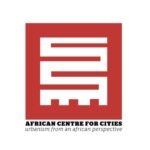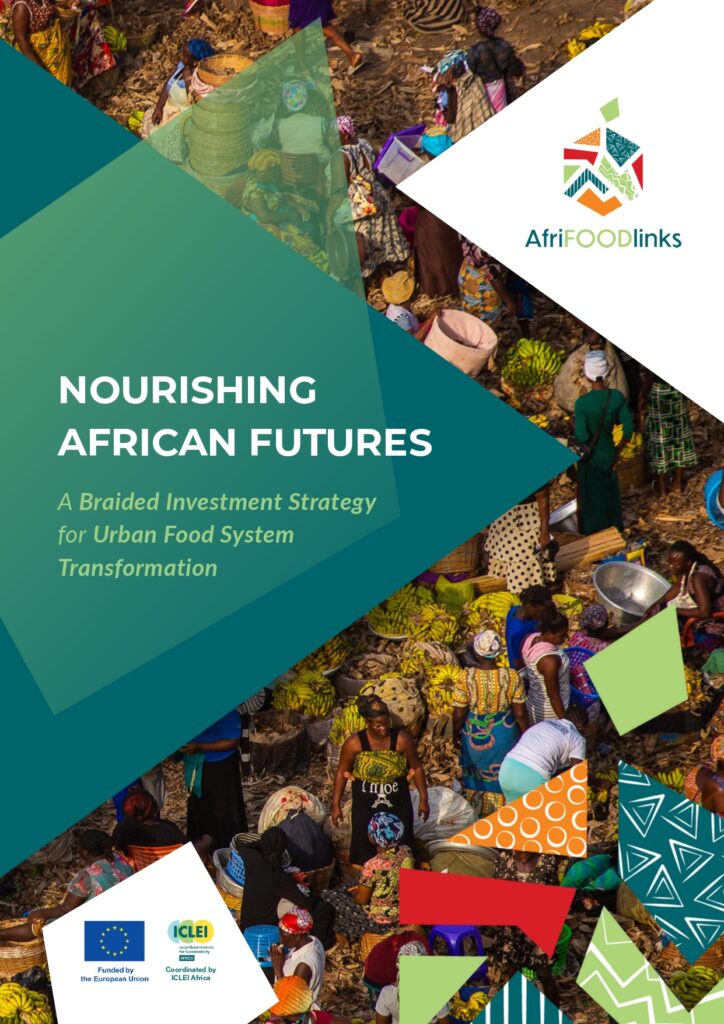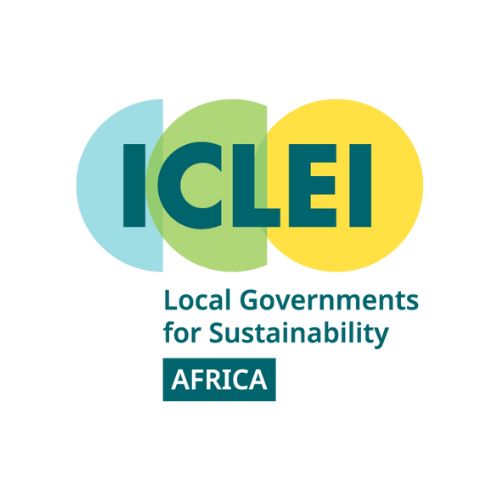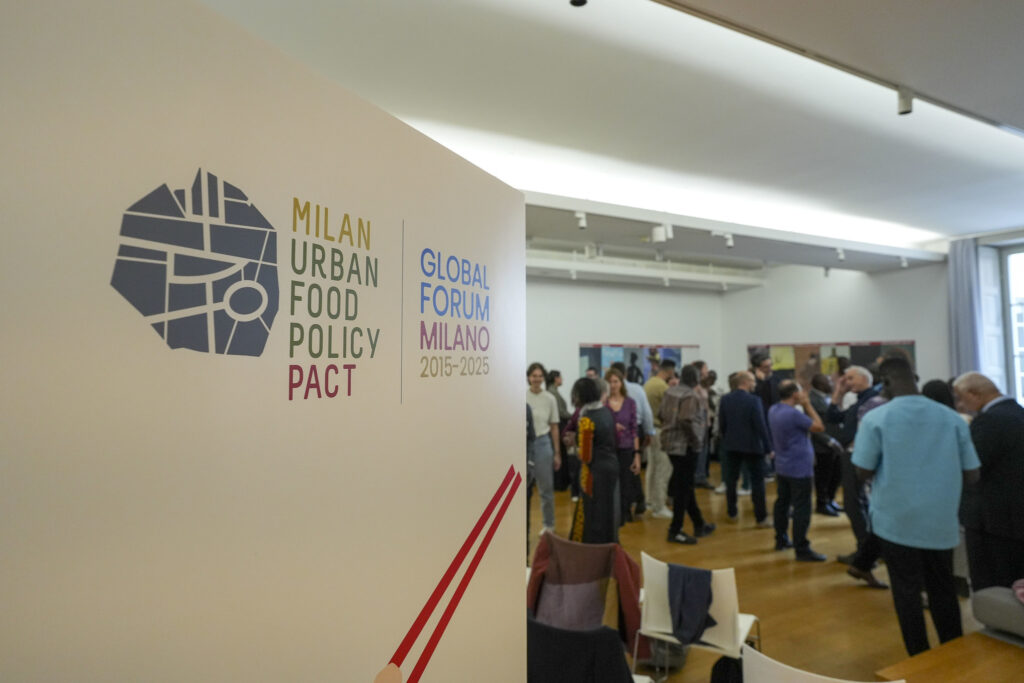Home » Explore the latest project news » Transforming real life experiments into knowledge
Transforming real life experiments into knowledge
Shifting our gaze and learning from practice.
As a researcher, my peers are often intrigued by the practical side of our work. After a recent meeting, a colleague humorously asked whether I was just “stroking my beard,” or if we’d actually committed to real actions.
The AfriFOODlinks project has reached a pivotal stage. We are immersed in the hands-on, intricate work of “doing” and, crucially, learning from it. For academics, the opportunity to be actively involved in such processes is rare and invaluable. Traditional research often dictates a detached stance, conjuring the image of a researcher in a lab, donned in protective gear, peering through a microscope.
Yet, African cities are not “petri dishes” to be studied from a distance. When viewed only through an outsider’s lens, the genuine realities, intricate complexities, and dynamism of African urban environments are missed, leading to interventions that lack true applicability. More problematic still, solutions are often “copied and pasted” without considering local contexts, overlooking unique urban food system dynamics across Africa.
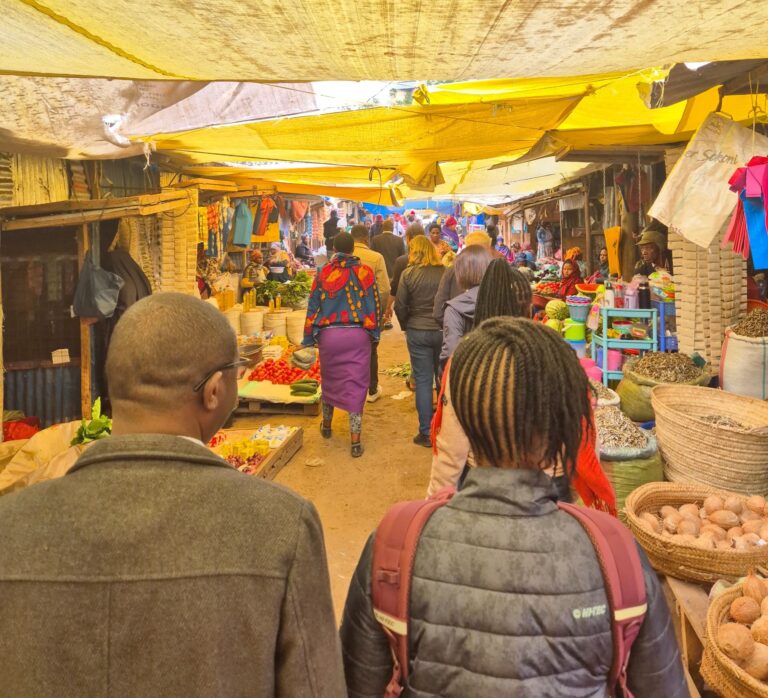
AfriFOODlinks takes a distinctive approach, led by African researchers deeply rooted in local and transnational networks, collaborating with state actors, NGOs, and various social movements. This position allows us to gather nuanced, context-sensitive evidence on urban processes, applying theoretical frameworks with both local and practical relevance. Every city engagement, whether a city-to-city exchange, a report, or a pilot program, offers a unique opportunity to develop case studies grounded in African realities. These engagements are vital and form the core of the AfriFOODlinks project.
The urgency of documenting our learnings cannot be overstated. Urban food policy in African cities is often shaped by imported theories and methodologies that fail to reflect the local context, affecting decision-making on critical urban issues. For example, this disconnect has historically favored supermarkets over local informal vendors or led to harsh crackdowns on informal markets. Moreover, essential wet markets are frequently pushed to city peripheries, even as planners rely on them for their daily food purchases.
The current phase of AfriFOODlinks allows us to conduct detailed empirical analysis on these urban food systems, reflecting critically on how these structures have evolved. Working closely with city officials and other food system stakeholders, we are navigating policy gaps and identifying areas historically overlooked in urban food governance.
As we dive into this extensive learning process, the project’s knowledge work package is now changing its focus. We are tasked with synthesizing our findings and translating them into actionable knowledge. Moving beyond a detached, observational approach, we are immersed in the African urban food landscape, aiming to garner valuable insights from these on-the-ground experiences.
Our proposal highlighted Africa’s unique capacity for innovation, bridging action with knowledge in response to local challenges. Now, we must embrace diverse perspectives and bridge the gap between theory and practice, fostering collaborative solutions. With support from our partners, we will further explore these themes at the upcoming AfriFOODlinks Consortium meeting in November 2024, committed to advancing our understanding of African urban food systems.
This phase marks the beginning of a transformational journey in reshaping knowledge around African urban food systems, catalyzing action and learning in equal measure.
Explore
"Research"


